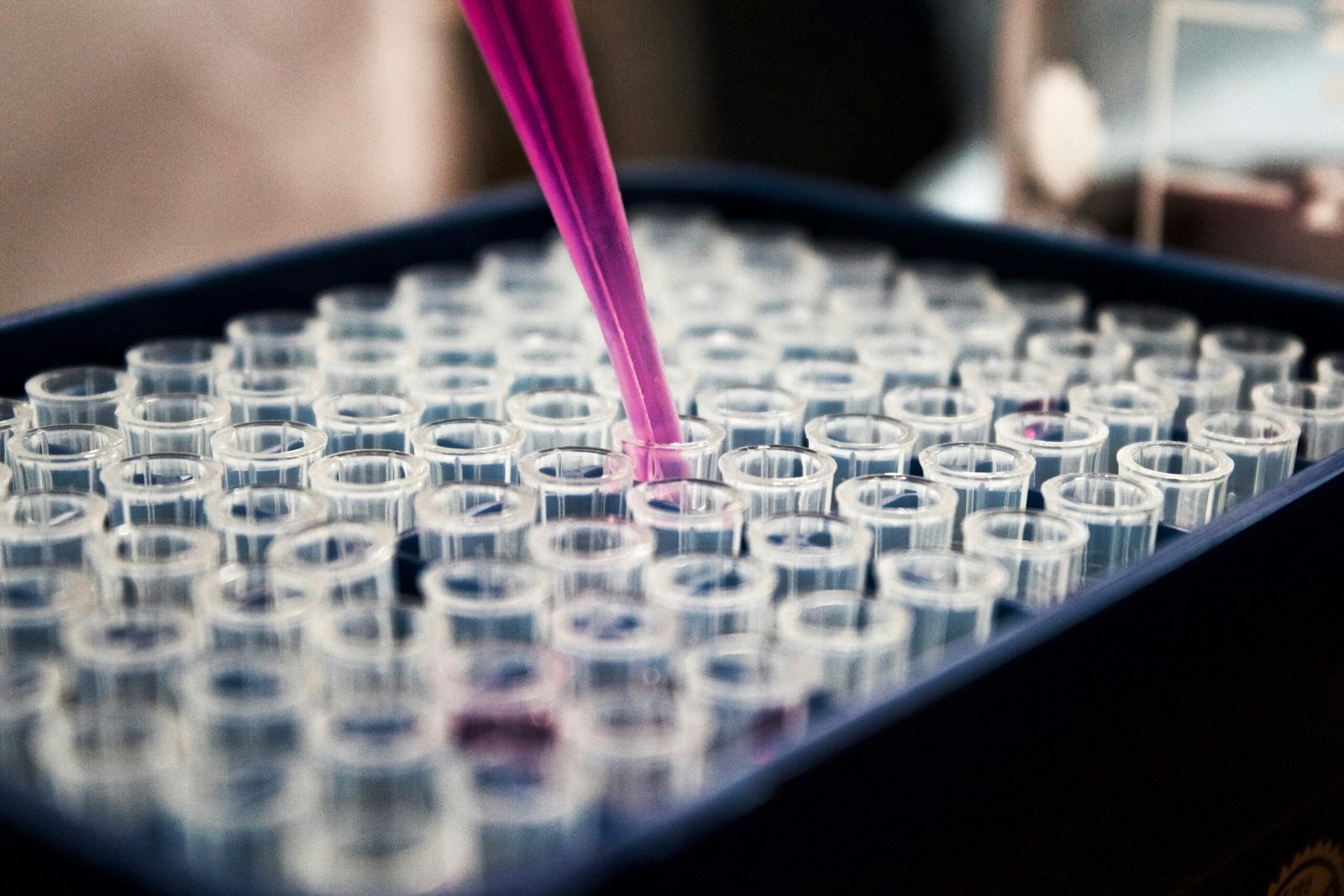What is Endometriosis?
Endometriosis is a chronic medical condition characterized by the growth of tissue similar to the endometrial lining of the uterus outside the uterus. This ectopic tissue commonly adheres to the pelvic organs, such as the ovaries and fallopian tubes, and can also extend to other areas within the abdominal cavity. The presence of this tissue can lead to a variety of symptoms, significantly affecting a woman’s quality of life.
One of the most prevalent symptoms is chronic pelvic pain, which can often be debilitating. Many women report experiencing this pain during menstruation, known as dysmenorrhea. Other symptoms include painful periods, known medically as dysmenorrhea, during which women may experience severe cramping and discomfort. Additionally, endometriosis can contribute to fertility issues, as the presence of endometrial-like tissue can interfere with normal ovulation and implantation processes.
The prevalence of endometriosis is estimated to affect approximately 10% of women in their reproductive years, translating into millions of individuals worldwide. Research indicates that this condition can significantly impact women’s health, contributing not only to physical challenges but also to emotional and psychological difficulties. The complex nature of endometriosis often complicates diagnosis, with symptoms frequently mistaken for other conditions such as irritable bowel syndrome (IBS) or pelvic inflammatory disease (PID).
Diagnosing endometriosis requires a thorough evaluation which may involve physical examinations, imaging tests, and sometimes laparoscopic surgery for definitive diagnosis. The layers of complexity in recognizing this disorder underscore the importance of awareness and education regarding its symptoms and effects. Understanding endometriosis is crucial for those affected, as timely diagnosis and treatment can lead to improved health outcomes and a better quality of life.
Current Treatment Options for Endometriosis
Endometriosis, a chronic condition characterized by the presence of endometrial-like tissue outside the uterus, poses significant management challenges. Currently, various treatment modalities exist, and they can be categorized into medical and surgical options, catering to the diverse experiences of individuals suffering from this condition.
Medical management primarily involves pain relief and hormonal therapies. Nonsteroidal anti-inflammatory drugs (NSAIDs) such as ibuprofen and naproxen are commonly employed to alleviate pain associated with endometriosis. Additionally, hormonal therapies are pivotal in managing symptoms; they work by suppressing estrogen production to reduce the growth of endometrial-like tissue. Common hormonal treatments include birth control pills, GnRH agonists, and progestins. While these treatments can be effective, they may not induce complete symptom relief for all patients and often require ongoing assessment and adjustment.
Furthermore, lifestyle changes have been recognized as supportive in managing endometriosis symptoms. These may include dietary adjustments, regular physical activity, and stress reduction techniques. Some studies suggest that a diet high in omega-3 fatty acids and low in processed foods can be beneficial. Yoga and mindfulness practices may also contribute to reducing symptom severity and improving quality of life.
Surgical interventions become necessary for cases where symptoms are severe or unresponsive to medical treatment. Minimally invasive surgery, such as laparoscopic excision, aims to remove endometrial lesions while preserving reproductive organs when possible. This approach not only alleviates symptoms but also enhances future fertility prospects. Recent advancements in surgical techniques and technologies have yielded promising outcomes for patients.
Emerging treatments for endometriosis, including novel hormonal agents and immunotherapy, are currently under investigation in clinical trials. These approaches showcase the dynamic nature of endometriosis research, offering hope for enhanced treatment efficacy in the years to come. For further reading on these options, recent studies can be found in medical journals focused on gynecology and reproductive health.
Is There a Cure for Endometriosis? Insights from 2024 Research
Endometriosis, a chronic and often debilitating condition, has long posed a challenge to medical professionals and researchers alike. The question of whether a cure exists for endometriosis remains one of the most pressing inquiries within the field of gynecology. As of 2024, significant strides have been made in understanding the condition and exploring potential therapeutic pathways aimed at offering relief and possibly a cure.
Recent research has highlighted several innovative treatment approaches. One promising avenue is gene therapy, which targets the underlying genetic factors that contribute to the development and progression of endometriosis. By altering gene expression, researchers hope to modify the biological landscape of the endometrial tissue, potentially offering long-term solutions rather than symptomatic relief. Clinical trials are ongoing, and preliminary findings suggest that gene therapy may yield positive outcomes for some patients.
Another area of exploration is immunotherapy. This approach harnesses the body’s immune system to target aberrant endometrial cells and reduce their proliferation. Studies conducted in 2024 have shown encouraging results, indicating that certain immunotherapeutic agents may not only alleviate symptoms but also inhibit the progression of the disease. However, further research is required to understand the long-term effects and overall efficacy of these treatments.
Despite these advancements, researchers caution that a definitive cure for endometriosis remains elusive. While many studies showcase positive results, they also highlight ongoing challenges such as variability in patient responses and the need for individualized treatment plans. As research continues to evolve, it is essential to foster a realistic perspective regarding the management of endometriosis. Collaboration between researchers suggests that future breakthroughs from clinical trials may eventually pave the way toward more effective treatments, potentially bringing us closer to a cure.
Resources and Support for Endometriosis Patients
For individuals and families affected by endometriosis, navigating the complexities of this condition can be challenging. Fortunately, numerous resources and support systems are available to assist patients in understanding their diagnosis, managing symptoms, and connecting with others who share similar experiences. One of the primary organizations is the Endometriosis Foundation of America, which provides valuable information on treatment options, research updates, and patient education materials. Their website features a comprehensive resource library that serves as a vital reference for anyone looking to deepen their knowledge of endometriosis.
Support groups are also essential in fostering a sense of community and shared understanding. Local chapters of organizations such as the Endo Warriors or the Endometriosis Network offer in-person meetings where individuals can discuss their experiences and receive emotional support from peers. Online communities on platforms like Facebook or Reddit allow patients to engage with others globally, sharing personal stories, advice, and coping strategies. These groups are crucial for those who may feel isolated due to their condition, providing connection and shared resources.
Moreover, for those seeking scholarly insights, numerous scientific research articles are available through platforms like PubMed and Google Scholar, which provide access to recent studies exploring the complexities of endometriosis and its treatments. Government health resources, such as the Centers for Disease Control and Prevention (CDC) and the National Institute of Health (NIH), offer official information on the condition, including statistics, health implications, and ongoing research initiatives aimed at discovering better treatment options.
By utilizing these resources, individuals affected by endometriosis can gain a greater understanding of their condition while accessing the support necessary to enhance their quality of life. Empowering oneself with knowledge and community support is essential in navigating the journey of living with endometriosis.






